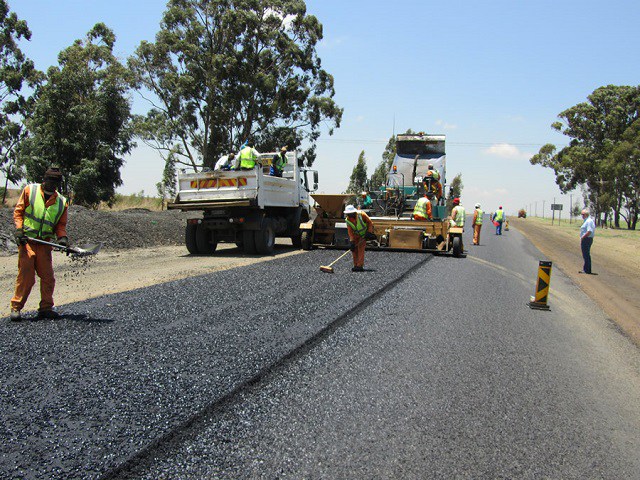Govt’s new road fund to stimulate business in rural areas
Government has said it will this year establish a fuel and equipment fund as it seeks to quickly rehabilitate some country roads that are in deplorable state due to lack of maintenance, according to Minister of Transport and Infrastructural Development, Felix Mhona said.
Zimbabwe’s rural areas are major sources of raw materials needed by industries in agri-produce processing and mining among others, but due to poor road infrastructure, cost of doing business has been breaking the ceiling.
Speaking in parliament recently, Mhona noted; “This year as a Ministry, we have a fund to supply fuel and equipment so that our roads will be rehabilitated.”
The ministry is looking at the latest technology to help hold the rural roads together in order to avoid land degradation and soil erosion.
“We want to look at emerging trends so that we will not have soil erosion, therefore, we are going to visit your constituencies and work with Members of Parliament,” he continued.
Last year the ministry said it had embarked on nano-particle technology research for rural gravel roads in order to maintain access to critical services during the rainy season.
Nanotechnology refers to the branch of science and engineering devoted to designing, producing, and using structures, devices and systems by manipulating atoms and molecules at nanoscale, resulting in less porous roads which absorb less water than traditional gravel roads.
With nano-particle technology the minister said it would take at least four to five years before it needs to be looked at again.
According to economist, Tinevimbo Shava, a reliable road network is a prerequisite for economic development.
He, however, acknowledged that the provision of all-weather transportation infrastructure in developing areas, using traditional design approaches, currently comes at a considerable cost.
“The construction of a low-volume two lane road in rural and urban areas may vary from about US$500 000/km in more developed areas, to US$1,2 million/km rural areas, or even considerably more in remote areas as influenced by material, logistics and safety risks,” Shava said.
Mhona added; “Our roads are indeed in a sorry state, but I am asking for mercy from this (August) House and the nation of Zimbabwe at large, we cannot fix our roads in one day because of the rains. Our roads are in a bad state, but if we put together the resources that we have, you will see us coming and rehabilitating our roads,” said Mhona.
Parliamentarians were urged that when they go back to their rural areas and if the local authorities do not have graders, they should sit together with them with regards to purchasing of graders.
“This time you will not find the snow graders, but you will find state-of-the-art graders. This year, these are the plans that we have. We want to buy graders for all the rural district councils, graders, and tippers. We also give you fuel so that you come here and report that you have rehabilitated your roads,” he said.
Since independence in 1980, it has been extremely difficult for the country to operate under the prevailing sanctions and it differentiates Zimbabwe from other countries in the way roads are rehabilitated. In most countries, the money in government coffers cannot rehabilitate roads without external funding.
“We want to rehabilitate that road because it has been in a bad state for a long time. We also want to rehabilitate the Chirundu Border. We are not stopping there; we are going to start from Harare going to Chirundu Road and in the next two months, we will also want to rehabilitate the Nyamapanda Border Post. Those who are aware, we are also going to Mutare and refurbish the Forbes Border Post,” Mhona said.-ebusinessweekly











